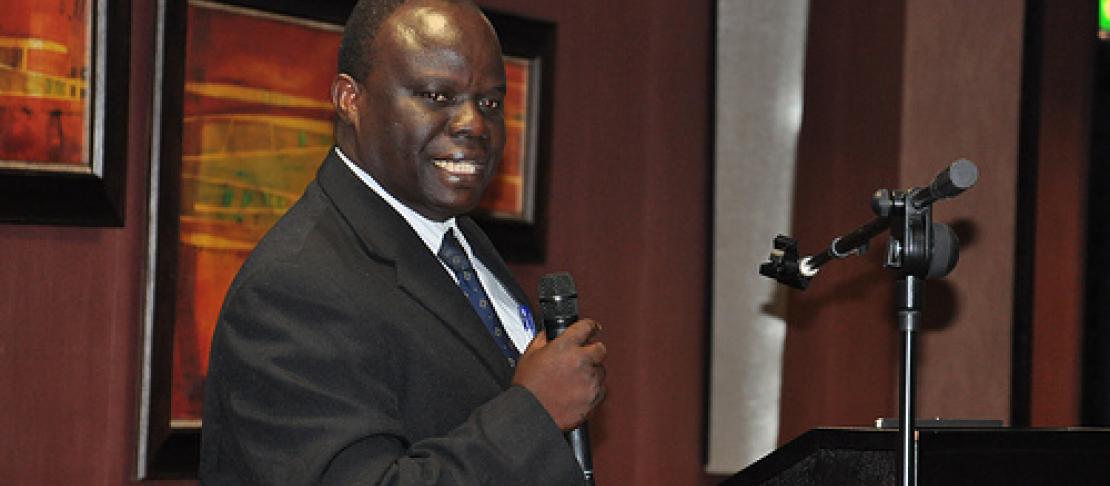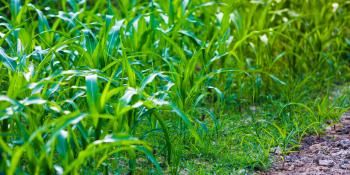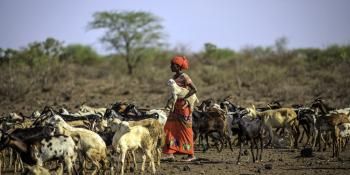A post-Durban dialogue on climate change and agriculture in Eastern and Southern Africa

Co-written by: James Kinyangi and Maren Radeny
Following the conclusion of the COP17 Durban talks on Climate Change in December 2011, Parties agreed to mandate the Subsidiary Body for Scientific and Technical Advice (SBSTA) to consider issues related to agriculture and to prepare a decision to be adopted at COP18 later this year in Qatar. Consequently, Parties and Observer Organizations are expected to make submissions to the United Nations Framework Convention on Climate Change (UNFCCC) Secretariat on issues relating to agriculture as well as on agricultural elements of a Nationally Appropriate Mitigation Action (NAMA) by 5 March 2012.
To follow up on these actions, the CGIAR Research Program on Climate Change, Agriculture and Food Security (CCAFS), in partnership with the Common Market for Eastern and Southern Africa (COMESA), the East Africa Community (EAC) and the Southern Africa Development Community (SADC) organized two workshops to help further articulate the African position on agriculture.
These workshops, which were held in Arusha, Tanzania and Johannesburg, South Africa in mid-February, brought together climate change and agriculture experts, negotiators from government institutions, universities, research institutions, NGOs, civil society, farmer organizations and the private sector. Workshop participants were drawn from eighteen countries in East and Southern Africa.
While opening the East Africa workshop, Ms Epiphania Kimaro, who represented the Tanzania Minister for Agriculture, Hon. Prof. Jumanne Maghembe, emphasized the commitment of governments and other Regional Economic Communities to respond to the impacts of climate change collectively through policy and practical measures.
Moving forward on a common agricultural position for Africa
In East Africa, participants identified key issues relating to agriculture. At both meetings, elements of the Agricultural NAMA were discussed. This included suggestions for investment areas, performance and benefit measurement and international actions needed to support technology development and transfer.
Other areas identified for submission under a framework of agricultural adaptation included needs for capacity building, governance and finance as well as early action readiness. For East Africa, submissions will be prepared by member countries for consideration by SBSTA in the following agreed areas:
- Assessing the state of development, transfer, effectiveness and efficiency of technology and practices that enhance adaptation and mitigation to climate change;
- Assessing the availability, access, reliability and use of the scientific data and information in relation to climate change and its effects on agriculture and food security;
- Enhancing cooperation in research and development;
- Developing appropriate methods and tools for measurement, verification and reporting (MVR) of Green House Gas emissions; and
- Other issues related to trade, agricultural financing, intellectual property rights, relationship between agriculture, green economy and the low carbon development strategies, and support for early action readiness in agriculture.
In southern Africa, similar issues on agricultural adaptation were identified. Special attention was given to the potential co-benefits of mitigation in agriculture, including:
- Establishing guidelines and modalities to facilitate the process of identifying mitigation potential in agriculture;
- The harmonization of methodologies, measurements and guidelines for carbon emission and sequestration in agriculture;
- Assessing post-harvest technologies that have potential to eliminate wastage and inefficiencies in the food delivery system.
The workshop participants called for SBSTA to establish a 3-year work program to enhance international cooperation on research and development of climate resilient agricultural systems with reference to the needs identified by African countries.
On the next steps, the chair of the African group of negotiators urged Parties to build collective action by ensuring follow through on the agreed areas of submission to SBSTA. CCAFS and COMESA, in partnership with other regional actors and networks, will continue to communicate and deepen the understanding of agriculture and build capacity for negotiators to engage in the UNFCCC process. At both meetings there was strong interest to work together towards a common shared vision on the green economy and low carbon growth towards Rio+20 in June and COP 18 in November-December.
James Kinyangi is the regional program leader of CCAFS East Africa benchmark site. Maren Radeny is working as a science officer at the East Africa office.


